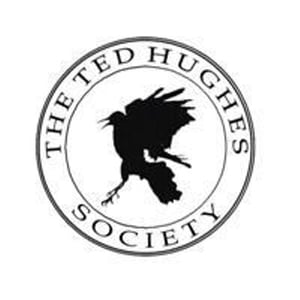Poetry by Ted Hughes
Wolfwatching (London: Faber and Faber, 1989)
David Troupes (Poet & Independent Scholar) examines an unusual variant in Hughes ouvre
Wolfwatching occupies a curious place in Ted Hughes’s poetry. Uniquely among his later books, Wolfwatching forms no single sequence or structure, and its mixture of closely observed nature poems (‘Macaw’, ‘The Black Rhino’) and harrowed fixations on the First World War (‘Source’, ‘For the Duration’), glued together with reaching metaphysical enquiries (‘Astrological Conundrums’, ‘Take What You Want But Pay For It’) recalls the loose structures of his earliest books.
What Wolfwatching might lack in topical unity, however, it more than makes up for in its tonal unity, as poem after poem dramatises dissipation and waste, whether the post-war torpor of Calder Valley residents, or the titular wolf, watched in its cage in aLondon zoo:
…He cowers
His hind legs to curl under him. Subsides
In a trembling of wolf-pelt he no longer
Knows how to live up to. [1]
Lines such as these resonate powerfully with those describing Hughes’s father, permanently stunned by his experience of the Great War: ‘There he sat, killed but alive’ [2]. Both the wolf and the man suffer the wound of their own unspent and misspent energies, a tragic process of waste and rot which Hughes presents as the condition of living the modern world.
But Hughes is not simply being gloomy or hopeless. Much the opposite: by connecting the experience of war veterans with that of the powerful but frustrated creatures of ‘Wolfwatching’, ‘Macaw’ and other pieces, he implies our own worth, the animal purity which persists inside us, neglected but unvanquished. Indeed, the collection begins with the beautiful ‘A Sparrow Hawk’, presented here as ‘A warrior’ with ‘Those eyes in their helmet’ and ‘A blue shoulder-cloak wrapped about him’ [3] – a martial but not crudely violent image. The hawk is dignified, self-possessed, a perfection of the power which was corrupted and spent so needlessly in the trenches of the Great War.
This dark vision extends to the earth itself, and another major preoccupation ofWolfwatching is the West Yorkshire landscape of Hughes’s youth. Eight poems fromWolfwatching were later incorporated into the expanded Elmet of 1994, most dealing in one way or another with the Great War, showing us how closely linked in Hughes’s imagination the Pennine landscapes and communities were with that terrible conflict. ‘Slump Sundays’ begins with a funereal gathering – ‘Humped around me, mourners ate cold mutton’ – and finishes with a child’s vision of the valley overshadowed by war:
And a scraggy sheep at the moor-ed
Like a boulder tipped from the quarry
Took on the wild look of a hope
Returning from no man’s land. [4]
‘Climbing into Heptonstall’ imagines a crazed monologue on behalf of the CalderValley:
‘Wash the black walls!’
Came the madman’s yell. Bird-like. Wordless.
It meant: ‘Wash the blood
Wash the Calder
Of all that still weeps down
Out of the walls
The weaver’s baffled, half-deaf shout
Congealed in the walls [5]
This is a people and a land in perpetual mourning, perpetually overshadowed by death and death-in-life, an economic and military casualty bleeding from a wound which even time seems powerless to heal.
Elsewhere in the collection Hughes casts these concerns in a more spiritual light, with poems like ‘Take What You Want But Pay For It’ exploring the process and consequence of mind/body dualism in Western culture. Dismantling and repairing the basic schematic of Christian faith has been a pastime of Hughes’s poetry since at least Crow, and ‘Take What You Want’ revisits the thesis that ours is a broken state, with true salvation (that is, a reharmonisation of spirit and matter) arriving through a goddess-muse:
A misty enfoldment which materialised
As a musing woman, who lifted the body
As a child’s, effortless, and walked
Out of the prison with it, singing gently [6]
Tenuous though the connections may appear between this and other Wolfwatchingpoems, all operate within a vision of suffering, regret, and exclusion from the means of health and healing. There is hope to be found, however, not least in the collection’s closing piece, ‘A Dove’, which brims with vigour and joyous energy, and ends with a universal benediction, the pair of doves ‘Bubbling molten, wobbling top-heavy / Into one and many’ [7]. This poem works hard to lighten the grim weight of the rest of the book, and to provide the balance and (in this case literal) uplift which Hughes always strove for in his collections. But proceeding from such a catalogue of waste and frustration as it does, ‘A Dove’ can only achieve so much, andWolfwatching remains a book heavily laden with the knowledge of what we have done to ourselves, of distances fallen, and prices paid.
David Troupes is a poet and independent scholar originally from Massachusetts though currently living in West Yorkshire, where he works in social housing. His first full book of poems, Parsimony, was published by Two Ravens Press in 2009, and a second collection is in preparation. Other creative work includes publications from Knucker Press, and collaborations with illustrator/printmaker Laurie Hastings and composer Joel Rust.
Notes
1. Ted Hughes. Collected Poems. London: Faber and Faber, 2003. 755.
2. Hughes, Collected, 753
3. Hughes, Collected, 747
4. Hughes, Collected, 750
5. Hughes, Collected, 750
6. Hughes, Collected, 774
7. Hughes, Collected, 1195
